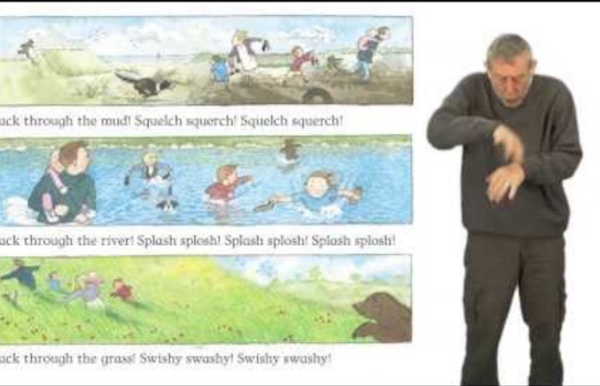



http://www.youtube.com/watch?v=0gyI6ykDwds
Related: kamilina • FutureLearn_EnglishInEarlyChildhoodWhole Child Development Is Undervalued The question is how to make such an approach both systemic and sustainable. Whole Person Socio-emotional, physical, creative, and cognitive capacities are deeply intertwined and equally important in ensuring a child's wellbeing, learning, and growth. Paper Roll Animals Get crafty with paper towel/toilet paper rolls and make some adorable animals! Just add scissors, paint, googly eyes, and hot glue. This is the perfect boredom buster for a rainy day! (Or a hot one – where we live, summer is not an outside season!) How to teach children English using illustrated storybooks What makes illustrated storybooks such a good resource for teaching young learners of English? The British Council’s Gail Ellis, co-author of a storytelling handbook for primary English language teachers, explains. Listen to an interview with Gail in our podcast and register for her webinar taking place on Thursday, 2 October.
Days of the Week Song Subscribe to our YouTube channel to stay up-to-date with our latest videos! Language Focus Other songs about: time/calendar The days of the week! Days Of The Week Lyrics and Actions ♫ Sunday Monday Tuesday Wednesday Thursday Friday Saturday (Repeat) ♫ How can parents and teachers best educate young children? What principles can both teachers and parents bring to the education of very young children? Gillian Craig, who was part of the Learning Time with Shaun and Timmy writing team, explains. As teachers and parents, we follow certain principles in our roles. Often though, these principles overlap and all we need to do is recognise and reinforce these areas. Schemas in Children’s Play - N a t u r e P l a y Written by Clare CaroSchemas in Children’s Play are such an important concept when it comes to the development of our children that it’s worth taking the time to understand them so you can facilitate them when you see them.What are these schemas?Well it’s really a fancy word for the urges that children have to do things like climb, throw things and hide in small places. They appear through play; perhaps it is the way they choose to do things, or what they desperately need to do out of the blue!
I Said I Want the Red Bowl! Responding to Toddlers' Irrational Behavior Pin It Amelia, told that she can’t have a fifth book before bedtime, shouts: “You are the meanest mommy! You are not invited to my birthday party!” Derek, when offered a choice between carrots and cheese, not ice cream, before dinner announces: “I don’t like the choices you are choicing me!” Alex hurls a bowl of his favorite cereal off the table and screams, “I said the red bowl, not the blue bowl!” If any of these exclamations sounds familiar, you are not alone. Does my toddler have a short attention span because she won’t sit still for a story? A: It is perfectly normal for toddlers to not sit still very long—period. Most don’t like to stay in one place for long now that they can explore in so many new ways—by running, jumping, and climbing. So, an adult’s idea of snuggling on the couch to hear a story may not be the same idea a toddler has for story-time.
Video lessons In this video we will be showing you why we like How It Should Have Ended For Kids. We're focusing on two playlists: Silly Songs and Fixed Fairy Tales, with some practical ideas about how we use them in teaching young learners. Here's a link to an interactive video quiz at our site for one of the videos from the channel, and here's a link to the channel itself.
Teaching English to learners with Special Educational Needs (SENs) – Myths and realities ‘I know I have children with special educational needs in my class, I want to help them and we are supposed to promote inclusion, but I really am not sure how to do this’ Vera, primary teacher from Spain ‘Some of the children in my class are really badly behaved, they can’t sit still, don’t finish their work and are always calling out.
You speak with an accent. I don’t. Accents are things that only other people have. They are, by extension, things that you don’t want to have. Accents are, in short, shortcomings. The natives and the speakers Let me start with the good news. We are, all of us without exception, native speakers. This may come as a surprise to those of us who have had close encounters with the second/foreign language world, but is nonetheless true.